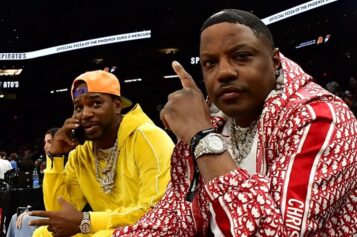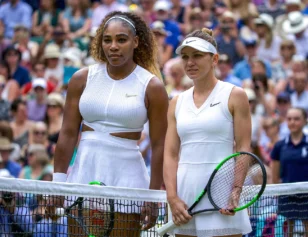Lionel Messi might not have made it in America.
At 25 years old, he is now listed at 5'7'' and 148 pounds. That alone might have been enough to keep the world's most prolific goal scorer out of action in American sports. Of course, it's possible once any coach recognized Messi's unmatched combination of speed, balance and vision that Messi would have found his way on the field or court. That's how F.C. Barcelona found him when he was 13, growing up in Rosario, Argentina, in need of shots to help him grow.
Messi eventually grew into the ideal height for his role in the beautiful game – almost the exact same stature as Argentinian legend Diego Maradona, who may as well have the attacking central midfielder role named after him – and into the most talented player the world may have ever seen. He is shattering records at an astonishing rate, this weekend scoring his 86th goal of 2012, a 40-year old scoring mark Messi just snapped with a handful of matches remaining in which to extend his mark. He is in line to win the Ballon D'or, FIFA's award for the best player in the world, for a record fourth time in January.
Oh…and he may just be getting started. Messi’s knack for avoiding serious injury means he could well play at a high level into his thirties like Andrea Pirlo, Steven Gerrard or Ryan Giggs. Even if he only plays until he’s 30, he’ll be rewriting record books for another five seasons.
Imagine Barry Bonds setting all-time records for the Pittsburgh Pirates. Better yet, given Messi's team accomplishments, imagine Michael Jordan setting all-time scoring records before his first retirement.
But it's where things started that provide the most questions about Messi. Despite his fame and ability, Messi remains a mystery to all but very few close friends. His hometown barely recognizes him. His childlike demeanor on and off the pitch is both refreshing and extremely curious.
Now, the real question remains whether the American audience will recognize Messi's brilliance in time to appreciate what the world may never see again.
–
The recent 30 for 30 documentary on Bo Jackson not only displayed his incredible talents, but also explored the mythical being Jackson became during his rise. Questions, no doubt, followed his injury-shortened career: What would have happened if he chose one sport?
The answer might look something like what Messi has accomplished in his illustrious career, minus career-threatening injuries (he has missed just 28 games since the start of the '06-'07 season). He played his first match for Barcelona at 17-years old, becoming the third-youngest player to appear for Barcelona, and the youngest in La Liga history (the top division in Spanish soccer). He quickly became the youngest player to score in Barcelona and La Liga history (a mark which has since broken by Bojan Krkic, courtesy of a Messi assist). Barcelona hasn’t finished below third since Messi played his first match for the senior side in 2005
During his first season as a starter for the Spanish-league giants, Messi became the youngest player to score in El Clasico, the name given to matches between Barcelona and Real Madrid, the other powerhouse in La Liga. Messi scored a hat trick on the day, the first player to do so since 1995, with each of his goals tying the game. His final goal came in the dying seconds to tie the match despite Barcelona having just 10-men on the pitch. Prolific and clutch.
To list the rest of what Messi has accomplished all before the peak of his career feels like a waste of time: every week it seems Messi enters his name in the record books for different reasons. Last season, he scored five goals in a Champions League match, a record, en route to 14 in the tournament, tying the record for Champions League goals in a season, a mark untouched since 1963. Last season, he set La Liga on fire with 73 goals, breaking the European club record of 67, held since 1973, and the world club record of 70, held since 1925. Every goal he has scored since March has been a new Barcelona record. The 232 goal-mark that feebly fell by Messi's wayside stood for 57 years.
In November, Messi passed Pele's personal-record of 75 goals in a calendar year and this weekend Messi tied and broke Gerd Muller's 40-year mark of 85 goals in a calendar year for club and country. On Sunday, Messi overcame mid-week injury fears – so scary Messi himself wondered when he would next kick a ball – to put two home against Real Betis to break the record with 86 goals. He has three matches remaining to extend his mark.
The numbers are impressive enough, but only tell a portion of the story. Messi's goals have their own mythical qualities, ranging from dazzling dribbles through oceans, mountains and valleys of defenders to unstoppable free kicks from distance. He picks out inch perfect passes to open teammates. His touch is immaculate. His speed and balance are mesmerizing. He has been called the only person in the world to run faster with the ball than without. He bewilders goalkeepers with his effortless power and/or grace depending on the situation.
It's not all about Messi, either. In fact, it's quite the opposite. Ever the humble star, Messi deflects almost all of his individual abilities to his team. Not that it's hard to do. Messi's Barcelona has won La Liga five times, the Champions League three times and the Copa del Rey twice. He's only in his seventh full season.
But there is more than just one reason why Leo Messi might not have made it in America. He hasn't been able win over his home nation of Argentina, as many in South America do not believe he can replicate his Barcelona form for his country, almost unthinkable in American lore. He left Argentina for Spain when he was 13. He's quiet, has a small circle of friends and rarely lets anyone in his group. His sessions with the media are impersonal and on-topic. The most frequent word used to describe Messi is childlike, for his joy on the pitch and for retreating into a shell away from it.
In America, that makes him a bit like a small Ricky Williams. In Rosario, Argentina, it makes him a stranger.
–
When Messi was 17, BBC Sport's Tim Vickery remembers watching him play for the first time .
It was a short, shambling 17-year-old with the air of the pigeon-toed runt of the litter. His name was Lionel Messi.
Messi had already been at Barcelona for nearly four years and had played one friendly for the senior side but he was an unknown in Argentina. Yet from the first time that he picked up the ball, it was obvious that he would not remain unknown for very long.
He didn't, but Messi was so unknown in his home nation that his first invitation to join the national team was addressed to “Leonel Mecci”.
Messi left for Barcelona because they offered to pay for growth hormones he needed from the age of nine. His local team, Newell's Old Boys, fronted the costs for a few years but couldn't afford to keep the poorly developed preteen. So, Messi went to Spain.
Though it can't explicitly be explained, the move has kept Messi from the hearts of many Argentinians. Wright Thompson traveled to his hometown to try and discover more. There was less than he could have imagined, with virtually no mention of Messi anywhere.
There wasn't a single mention of Messi inside. It was Sunday afternoon. Across the ocean, Messi and his Barcelona teammates were kicking off. The game was being broadcast all over the world, but not in Messi's own bar. I looked up at an enormous high-def television, which at the moment was tuned to a cooking show called "Clasico Shawarma."
Messi frequently attempts to reconnect with his hometown, but his efforts seem strange and futile. He has kept his childhood home in the exact condition since he left, even hiring a cleaner to keep the place in order despite its vacancy. He visits often and texts his old teammates regularly. He hasn't played with them since he was 12.
Despite his efforts and his goals, Argentinians prefer Maradona, who is beloved by his people for his outlandish antics, bravado, personality and absolute brilliance on the pitch. The final characteristic, as well as their stature, is about the only thing shared between the two players. Despite Maradona's own attempts to boost Messi's image in the eyes of his own people – once saying Messi's ball control was so good he could dribble while watching TV – Messi regularly catches slights from Argentinians.
However, when performances are disappointing, [Messi] meets with resistance from his own people, who are quick to seize on the fact that he has been based in Barcelona from the age of 13.
"You're not really one of us," they seem to be saying. "You are more Catalan than Argentine. You don't sing the national anthem or feel with passion the colours of the flag."
The perception is that Messi cannot replicate his form for Barcelona while wearing the national colors. To an extent, they are correct: Messi has not shattered records for his country. He also hasn't brought a World Cup trophy home, something Maradona accomplished in 1986 and nearly again in 1990, falling 1-0 in the final. Messi competes with both legends each time he puts on the Argentina shirt, and has, thus far, failed to dominate in a major tournament for his country.
It is the final accomplishment for Messi to solidify his unparalleled position as the best player the world has ever seen. Messi was quite literally born and bred to play central attacking midfielder for Barcelona, not only for his ability but for the system. To silence any doubters – even those who, from an outsiders perspective, appear to be holding a grudge akin to Americans telling Kobe to go play for Italy – Messi will need a World Cup title. At just 25, Messi will likely have at least two more chances. He usually doesn't need that many to reach his goals.
–
Lionel Messi's accomplishments guarantee his place atop the mantle amongst his era's top players. Cristiano Ronaldo might not like it, but Messi is the most superior player on plant earth today. He has about seven years left in his athletic prime to determine whether he goes down as the greatest player of all time.
Records will come and most of them will go. Messi's ridiculous rate of setting-all time records so young in his career ensures his name will forever be mentioned among the greatest. His team continues to win at unprecedented levels. This season, Barcelona is already nine points ahead of the second-place team with a goal differential of +33. They have yet to lose with only one draw. Messi has 23 goals in just 15 league games.
With the lessons of Bo Jackson in mind, it seems fairly safe to predict Messi's continued dominance for the foreseeable future, especially as he continues to grow into the role he has been training for since his days as an undersized 13 year-old for Barcelona. It's really just a matter of how much room he leaves between himself and the people in his dust.
His recently developed partnership with Sergio Aguero, a formidable striker married to Maradona's daughter with a penchant for scoring miraculous goals, may help him complete his destiny for Argentina, too. Aguero's presence affords Messi the extra inch of space he gets when playing with Barcelona, and their developing chemistry may be the final nudge to Messi's quest for immortality.
At 13, this would have seemed impossible for a young Messi to imagine. It's still hard to figure out looking back at his circumstances. Perhaps it's why Messi continues to look there, forever staying in a 12-year-old’s mindset.
But, while looking back may be the bigger mystery, most of Messi's story still lies ahead. If you haven't started watching and appreciating yet, now's a good time to start.



